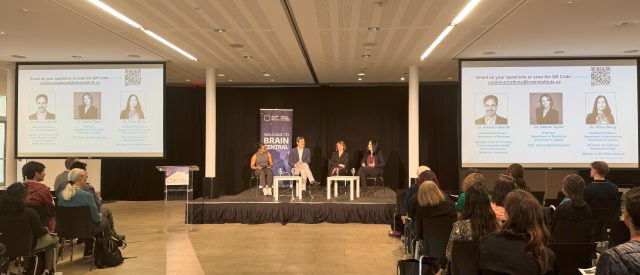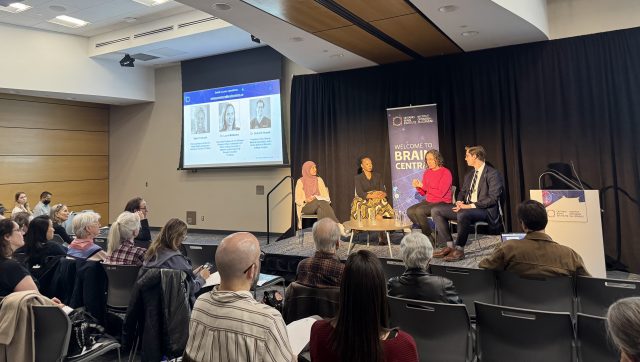
When Britain appointed Tracey Crouch its first Minister of Loneliness, most people found it humorous. The apparent silliness of that appointment quickly subsided and provoked important questions about mental health, extending beyond Britain’s borders. Is this issue true to Britain alone? And is loneliness no longer a personal matter? The Jo Cox Commission on Loneliness that urged Britain to act revealed more than 9 million people in Britain – around 14 percent of the population – often or always feel lonely, costing employers up to $3.5 billion annually, not to mention the personal costs in wellbeing.
Here in Ontario, our government committed $3.8 billion over 10 years to develop and implement Ontario’s Comprehensive Mental Health and Addictions Strategy. According to the strategy, the economic costs of mental health in Canada alone have been estimated as high as $50 billion per year. Major depression affects close to 2,000,000 Canadians annually and is the leading cause of time lost from work – more than cancer or heart disease. Depression is, itself, a risk factor for suicide, which is responsible for more than 3500 deaths annually in Canada. Mental health is a matter of concern at home and abroad – and for that reason, we must acknowledge and address the problem now.
There’s plenty of great work already happening here in Ontario and Canada – we are home to campaigns like Bell Let’s Talk and The Future Is Stigma Free, working to create positive change in mental health by generating hope and support for those struggling. On a community level, there are 100s of organizations that offer one-on-one support to individuals and at-risk communities. For example, Check Up From The Neck Up by the Mood Disorders Association of Ontario (MDAO) is a simple online quiz which helps to identify symptoms of common mood disorders and to assist people in finding help. The Canadian Mental Health Association facilitates access to resources to promote community integration, building resilience, and support recovery from mental illness. And we’re home to generous philanthropists making sizable donations to institutions like CAMH, Canada’s largest mental health teaching hospital and research centre – all in the hope for better prevention, treatments, and care.
The province certainly has the passion, talent, and resources – although a challenge this big requires a united effort. Our role, at the Ontario Brain Institute (OBI), is to bring researchers, clinicians, industry, patients, and their advocates together, focusing their strengths towards the common goal of improving brain health. In our eyes, mental health is brain health. Like other disorders of the brain and nervous system, we believe that it’s a problem that can be solved if we work together and address it from multiple angles, including research, commercialization, and care.
Research will yield new targets for depression treatment. For example, The Canadian Biomarker Integration Network in Depression (CAN-BIND), OBI’s depression research program, brings together experts from across the province to identify biomarkers in depression to assist in delivering prompt and precise treatment specifically targeted for each individual.
We also work to empower individuals to become partners in their own care. To do so, CAN-BIND worked with their patient partners and MDAO to translate the 2016 Canadian Network for Mood and Anxiety Treatments (CANMAT) Clinical Guidelines for the Management of Adults with Major Depressive Disorder into the patient friendly CHOICE-D guidelines. To date, the guidelines have been downloaded 2,416 times and translated in French and Mandarin.
New technology can help manage depression and support caregiving – Morgan Rosenberg, CEO of Resili, and an OBI ONtrepreneur, was connected with MDAO to help shape the development of his product. The partnership allowed Morgan to gain insight from people with lived experience and their caregivers on the design and utility of the app tailoring it to the needs of its end users.
And at the community level, a partnership with the Chiefs of Ontario, the Ontario First Nations Young People’s Council, the University of Western Ontario and OBI led to a program – Stories from our Roots, which aims to develop and implement an integrated mental wellness program that increases resiliency and reduces the risk factors associated with youth suicide within First Nations in Ontario.
Without the collaborative work of the world’s best brain researchers, exciting start-up companies and the strongest patient advocates we wouldn’t have come this far but we must keep up the momentum. By bringing the best together, we can identify accurate biomarkers for depression sooner in order to reliably match the right depression treatment to the right patient at the right time; through data sharing we can build on each other’s knowledge and better understand disorders across modalities; by helping young companies develop new tools and technology we can help people overcome every day challenges and adjust to their new normal; and we can address the community’s most urgent needs by listening to their concerns and bending our research to their priorities.
Together, we can help support Ontario’s 10-year strategy to tackle mental health challenges – and envision a world where people don’t have to randomly try multiple treatments to find one that works, where families don’t lose their loved ones to depression and where suicide is never an option. Ontario is already leading the way in its collaborative work, and together we can change the outlook of mental health and of the 2,000,000 Canadians dealing with the challenges of mental health disorders.


